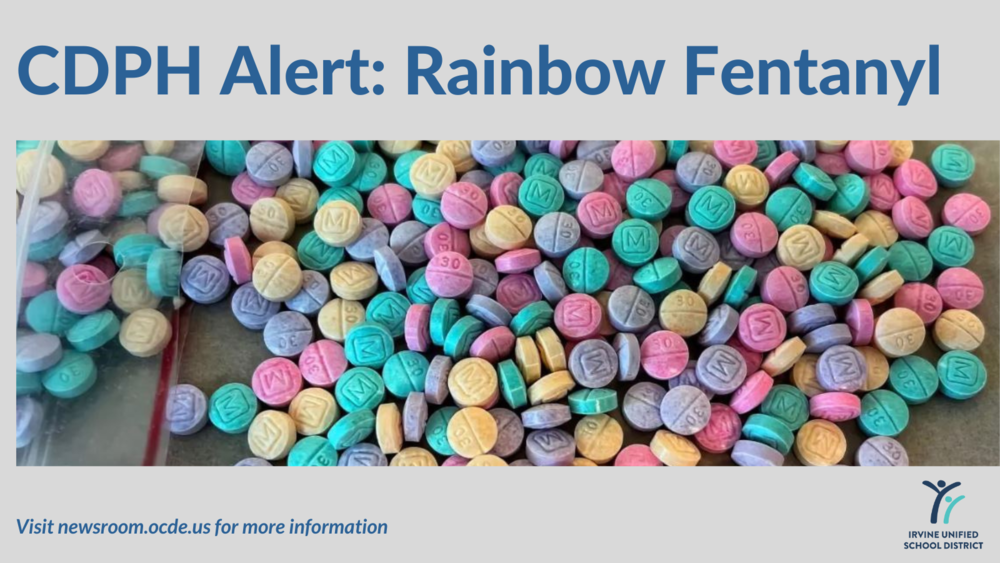
State health officials are warning the public about brightly colored “rainbow fentanyl,” which comes in a variety of forms and can resemble candy, sidewalk chalk and powders that may look attractive to children and teens. According to the U.S. Centers for Disease Control and Prevention, fentanyl is roughly 50 times stronger than heroin and about 100 times more powerful than morphine. One pill can have fatal consequences, and many fentanyl victims don’t even know they’re taking the drug. It is cheap to produce and is showing up in pills made to look like prescription medication and street drugs. Please take a moment to read this important article from the Orange County Department of Education, which provides more information about the dangers of fentanyl, signs and symptoms of use and overdose, and how it is affecting children and teens throughout the country.
The IUSD Board of Education passed a Board Policy and Administrative Regulation more than a year ago to make naloxone, also known as narcan, available at all IUSD middle and high school campuses. Naloxone is a life-saving medication that can reverse the effects of an overdose from opioids—including heroin, fentanyl, and prescription opioid medication. Staff have been trained on how to respond in a suspected opioid overdose and to administer naloxone.
If students are struggling with substance abuse or know of someone who is, they can reach out to their teachers, school nurses, mental health staff, principals and other trusted adults on campus. IUSD’s Prevention and Intervention webpage includes substance abuse resources; information about our Say Something Anonymous Reporting System; Care Solace, an online resource for IUSD families and staff with a live 24/7 concierge to assist individuals in finding local mental health related programs and counseling services; and information about IUSD’s Irvine Parent Education Program that often offers a variety of parent/guardian workshops related to this and other important topics.
For information about what parents can do and how to have age appropriate conversations with your children, visit:
- The Substance Abuse and Mental Health Services Administration’s “Talk. They Hear You.” webpage, which provides a variety of resources, including the importance of talking to children before they are exposed to drugs and alcohol.
- National Institutes of Health - National Institute on Drug Abuse that also provides important resources and information for families.